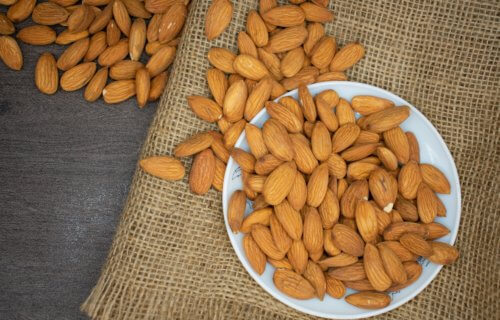TORONTO, Ontario — For the nutrition-minded, it’s common to match up food items at the grocery store while counting calories. If one snack is 80 calories and the other 60, well the 60-calorie snack is the healthier option, right? Not necessarily, at least when it comes to almonds. University of Toronto researchers say the calories listed don’t always equate to the amount dieters digest and absorb.
The team says their work should help ease the minds of many who are hesitant to include almonds in their diet over fat-related worries. A single ounce of almonds contains about 14 grams of fat. Aside from fat, almonds are generally quite healthy and offer tons of beneficial protein, vitamins, and minerals. Previous studies find almonds, and other nuts, can contribute to good cardiovascular health as well.
“Nuts have generally been thought of as healthy the last two decades, but the messaging around nuts has often come with a disclaimer that they are high in fat and energy,” says principal study investigator John Sievenpiper, an associate professor in the departments of nutritional sciences and medicine, in a university release. “We still see that caveat in the media and on the internet today, and it has been part of many clinical guidelines, although that is changing.”
“Other researchers have shown that there is a bioaccessibility issue with nuts, that a calorie labelled may not be a calorie absorbed. This study quantifies that effect with almonds in a relevant population,” the study author adds.
Some extra calories leave the body the ‘easy way’
The study finds the body does not absorb roughly 20 percent of the calories coming from almond fat after digestion. Ultimately, these excess calories leave the body via stool. That works out to about two percent less energy absorbed overall.
Researchers say a person following a typical 2,000-3,000 calorie per day diet would absorb somewhere between 40 and 60 fewer calories than foods labels may indicate. Over a full year, that seemingly small drop in calories can add up to 6.3 pounds in less weight.
In all, 22 men and women with high cholesterol took part in this research. Each person underwent a series of three, month-long dietary interventions, separated by a “washout period” of one week.
Participants followed a NCEP Step-2 diet, which is low in both cholesterol and saturated fat. The “interventions” included eating a serving of muffins (as a control), 75 daily grams of almonds, or a muffin-almond mix. None of the participants gained any weight during the experiment.
“One unique aspect of this study is that it assessed people with high cholesterol, who are at greater risk for cardiovascular disease,” says Stephanie Nishi, a doctoral student in nutritional sciences at the time of the study who is now a postdoctoral fellow at the University of Rovira i Virgili in Spain. “That has not been done in this population before, and it’s important because this group typically gets many messages to eat more nuts, owing to the evidence for nut consumption and heart health,”
Thanks to these findings, Diabetes Canada recently adjusted their guidelines on almond consumption. The hope is that this study will help eliminate the “nuts lead to weight gain” stigma.
The study appears in the journal Mayo Clinic Proceedings.
